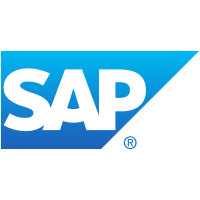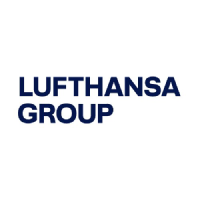seekingalpha.com/article/...sun-for-no-good-reason?source=feed
At 9:30 a.m. this morning, executives from Kingtone Wirelessinfo Solution Holding Ltd. (KONE) rang the opening bell for trading at the Nasdaq MarketSite in New York. There were pictures aplenty, with the requisite staged applause and deep grins, that made for such easy and welcome public relations copy for investors and the local media back home in Xi’an China.
Despite the "campaign stump speech" nature of it all, it’s a drill Nasdaq happily and willingly repeats, seemingly endlessly, day after business day. There are good reasons for that: The companies love the increased visibility and prestige and Nasdaq, which had been locked in an eternal listings war with the NYSE Euronext (NYX), a company that it was trying to buy it and that has a much more well-known bell-ringing ceremony – needs to keep them happy, proud and listed. For an annual fee that runs $37,500 on average (this doesn’t include the $25,000 or so listing fee), Nasdaq has little option but to keep the factory line of good cheer and congratulatory gestures going.
So Kingtone gets its star turn and its executives get their faces plastered in lights across Times Square. What investors are getting is an entirely different thing.
Pretty much all one needs to know about Kingtone is that its chairman, founder and largest shareholder Tao Li is the founder, chairman and largest shareholder of China Green Agriculture (CGA), a company under SEC investigation since January. CGA, a manufacturer and developer of humic acid fertilizer, is considered one of the more compelling Chinese reverse-merger absurdities in an era that has not lacked for them. (This is arguably the definitive investigative analysis of CGA and its operations; FI, for its part, raised some questions almost one year ago.) For a pro-CGA view, there are the loyalists at The Motley Fool.)
It gets worse. Kingtone shares its headquarters office with CGA and its chief financial officer, Denver-based Ying Yang, was CGA’s CFO when it released many of its most preposterous claims. Its defining economic attribute (outside of having to downsize its initial public offering from 30 million shares to 15 million shares; it didn’t work, and the stock dropped sharply in its first weeks trading) is related party transactions with CGA and the disclosure that chairman Li, who owns 48% of the stock, will spend more than 70% of his time on other, non-Kingtone matters.
A slack jaw is the only reaction to a few moments spent studying Kingtone’s financials. At bottom, we have a company that has been fully operational for about five years and is proudly claiming that its “proprietary core middleware platform” for “enterprise mobile solutions” allows it an almost 61% net income margin, despite spending only $179,000 on research and development. Microsoft’s (MSFT) management would, if these claims were remotely replicable anywhere else in the global economy, be on notice. As it is, the folks from Redmond will have to get by with spending $8.7 billion on R&D to make a 30% net margin.
(An amusing aside: The Financial Investigator reached a Nasdaq spokesman, Robert Madden, on his cell phone for comment. After learning who was asking the questions and their nature, Madden suddenly developed an inability to hear the conversation and hung up, promising to call back. He never did.)
There is, in a sense, little to be had for investigating Kingtone and its prospects since it is the slower-witted sibling of a more robust corporate flytrap. In reality, Kingtone is less a standalone economic venture than it is the thin end of a colossal marketing wedge from the U.S. in which Nasdaq sends its senior vice president in charge of new listings, Robert McCooey – accompanied by a slew of bankers and PR staff – on due diligence trips.
It’s not clear what McCooey, whose background is in running an NYSE floor brokerage, uncovers on these sorts of trips. Given McCooey’s pride of place at the opening bell ceremony for a host of Chinese reverse-merger disasters, it is doubtful that he uncovered very much, at least at China MediaExpress (CCME). (The Financial Investigator tried to ask him, but Nasdaq refused to make him available.)
McCooey, whatever else has come of his due diligence efforts, deserves a fair amount of credit for an effort that has brought at least 95 reverse-merger names to Nasdaq over recent years. Though a growing number of these companies have been halted or sunk due to their status as works of corporate fiction, their millions of dollars in both application and annual fees are real enough to Nasdaq OMX (NDAQ).
Seen this way, it becomes very understandable how Kingtone could not only get a listing but a generous helping of free publicity as well. After all, its check cleared.



















